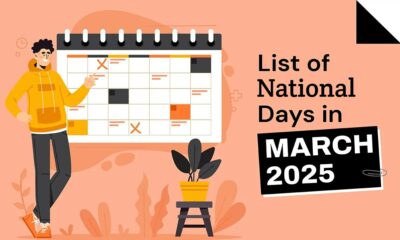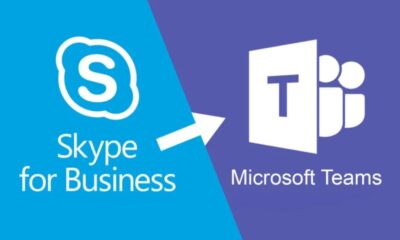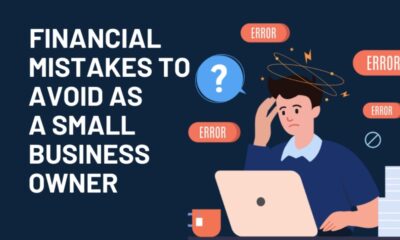Business
5 Small Changes You Can Implement To Make a Big Difference in Your Financial Situation

Improving your financial situation requires a significant amount of work and dedication. However, this does not imply that it must be complex. Small steps can make a tremendous difference in your financial status and put you up for success.
Here are five basics you can implement right now.
- Switch to a high-yield savings account
Traditional savings accounts have their place, but if you want to maximize your savings, they may not be the greatest option. In contrast, a high-yield savings account (HYSA) can provide significantly higher interest rates than traditional savings accounts. For example, while the average national savings account offers a rate of 0.45%, the best HYSAs currently offer rates of 4% or higher.
- Automate your savings
When you’re dealing with more immediate financial difficulties, such as debt repayment, savings accounts can easily fall by the wayside. This is especially true if you do not have automated savings transfers set up. However, doing this task on your bank’s website can take only a minute or two.
Even if you can only manage to save $100 or less every month, setting up an automatic transfer requires you to plan around that amount. And over time, that can build up to more than you anticipated, especially when unexpected needs arise.
- Open a Roth IRA
Retirement funds are another area that many people overlook. After all, if you have a 401(k), you probably have automatic contributions set up through your employer, making it easier to overlook other accounts that could help you save for retirement.
Roth IRAs allow you to withdraw funds tax-free throughout that time.
Furthermore, contribution limits for an IRA differ from those for a 401(k), allowing you to increase your entire savings. You may be able to automate contributions here as well.
- Pay your credit card weekly
Whether you’ve previously suffered from credit card debt, are new to the world of credit cards, or are a credit card expert, paying your credit card bills weekly can be a beneficial practice to develop.
This allows you to pay off your balance before your creditor charges interest, which saves you money. It can also help you ensure that you only charge for products you know you can afford, which is especially useful if you have a tendency to overspend.
- Get a budgeting app
Budgets are one of those financial tools that look wonderful on paper but are inconvenient in practice. That is why the best budgeting apps, which remove the effort from the equation, are excellent options.
They can help you see trends in your spending patterns without having to sift through your credit card statements. And because you get a top-down perspective of your accounts, you can better plan for the future, whether it’s paying off debt or saving for a house.
These five changes may seem insignificant at first, but they can have a significant impact on your overall budget over time. You do not have to address them all at once. However, because they only take a few minutes to complete, they are well worth the effort if you are ready to put in the time.
-

 Festivals & Events4 weeks ago
Festivals & Events4 weeks agoList of March National Days for Small Business Marketing to Boost Your Brand
-

 Business2 weeks ago
Business2 weeks agoNayef Doleh Examines International Humanitarian Fundraising Strategies
-

 Business2 weeks ago
Business2 weeks agoHow Black Banx is Redefining Global Banking Strategies in 2025
-

 Tech3 weeks ago
Tech3 weeks agoMicrosoft Teams to End SMS Messaging Feature Support for Android Phones and Switch to Phone Link App as Alternative
-

 Entertainment4 weeks ago
Entertainment4 weeks agoWinning Awards for Your Business to Boost Your Credibility
-

 Tech3 weeks ago
Tech3 weeks agoHow to Switch Between Microsoft Teams and Skype, How To Export Messages, Files, and Contacts from Skype Before It Shutting Down
-

 Startup3 weeks ago
Startup3 weeks agoFrom Trends to Sales: How Small Businesses Can Capitalize and Maximum Reach on Social Media
-

 Education2 weeks ago
Education2 weeks agoThe Power of Differentiated Instruction: Patrick Granfar Discusses Its Impact on Student Learning























